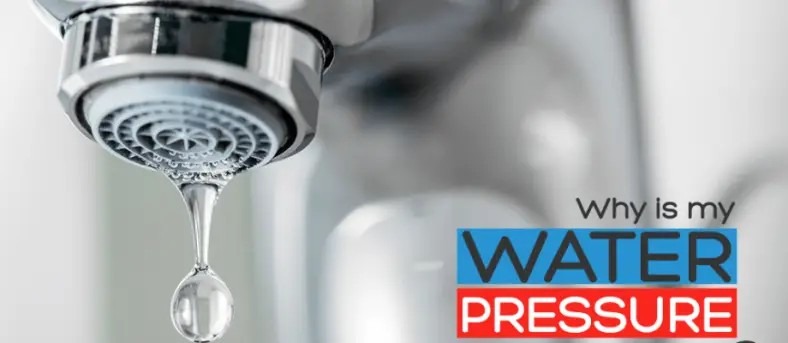Low water pressure can have a number of causes. The key to troubleshooting lies in observing just where and when these problems occur. Here are some questions that you can ask yourself to help you understand why you are struggling with low water pressure.
Is the Pressure Low Only When You Are Running Hot Water?
You may have a problem with your water heater. First, check the water heater shut-off valve. If the hot water pressure remains low even though the valve is fully opened, the water heater itself may need repair.
Is the Pressure Low Only in One Area of Your Home
What is the exact location of the problem? For example, water may blast out of a kitchen faucet but trickle out of the shower. When only one or two sources of water in your home are under-performing, check out the faucets that are giving you issues. The faucet itself may be clogged. Remove the aerator and soak it in a water and vinegar solution. In some cases, you may need to get a new aerator.
Is Your Water Meter on the Correct Setting?
Check the main water valve to our home. A gate valve should be turned fully in the counterclockwise direction, while a ball valve with a lever handle should be parallel to the pipe direction to be fully open. If the city has recently shut off water in your area, you may want to contact them to request an inspection of this valve.
Is Your Water Regulator Working Properly?
Some homes feature a water regulator, which is meant to control excessive water flow that may damage pipes. If the water pressure in your home drops suddenly, the regulator may have malfunctioned. While the pressure regulator is easy to locate (it is found where the main water source enters the home), it is critical that a professional repairs or replaces the regulator.
Are Your Pipes Leaking?
A leaky toilet or water source in the home may not only cause low pressure and a high water bill, but may also cause serious damage to your home. The simplest way to check a toilet for leaks is to put a few drops of food coloring in the tank. If after two hours (with no flushing) the bowl water remains clear, the toilet is fine. Other leaks may be detected by checking the leak detector on your water meter (usually a small triangle that rotates when water is running).
Is it Time to Call a Plumber?
If you have any problems with low water pressure a plumber can help you figure out what is causing the issues. When all of these fairly simple causes have been ruled out, it is time to face the possibility that you may need a complete overhaul of the plumbing in your home. Older pipes, especially galvanized iron pipes, become corroded over time. In cases such as these, a plumber is an absolute necessity. An experienced plumber can ensure that leaks and corroded pipes are fixed.

